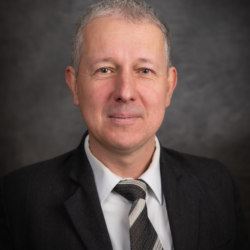Professor’s Op-Ed Warns Against West Thinking of Saudi Arabia as an Ally
President Donald Trump just designated Saudi Arabia a “major non-NATO ally.”
It happened during the White House visit of the crown prince, between the sale of the most advanced F-35 fighter jets to the Desert Kingdom and the promise of a trillion petrodollars of investments in the American economy.
Presidents come and go. Republican or Democrat, one thing remains constant. U.S. foreign policy in the Middle East rests on the fiction that Saudi Arabia is a reliable partner, perhaps even some sort of indispensable friend of the West. The narrative is repeated by both diplomats, top military officials, and business executives. It’s no wonder that many Americans accept it as a geopolitical law of nature as fixed as gravity or congressional incompetence.
But here’s the reality: Saudi Arabia is not America’s friend.
If the West thinks of it as an ally, it is as stupid as Stalin was when he collaborated with Hitler in attacking Poland. Saudi Arabia is, at best, a transactional player whose interests occasionally overlap with ours. At worst, it’s a regime that can easily flip to support America’s major adversaries, the CCP and Putin. Confusing temporary alignment with genuine alliance is not just naïve, it’s strategically suicidal.
Let’s break this down.
Every time a U.S. official tries to justify close ties with Riyadh, they reach for the same dusty script: “Saudi Arabia helps stabilize global oil markets,” “We need them for counterterrorism cooperation,” “They’re a bulwark against Iran.”
However, the Saudi regime and the West have very different moral foundations. We do not pursue the same political ideals. Riyadh does not share our appreciation for human rights, religious tolerance, or freedom of expression. Saudi Arabia is an authoritarian state whose legal code is based on Wahhabi interpretations of Sharia law. Their ruling class maintains power through coercion, propaganda, and economic leverage.
Despite cosmetic reforms, the kingdom enforces a rigid social hierarchy rooted in a medieval theocracy. A government that criminalizes political dissent, polices its citizens and visitors for drinking, enforces dress codes for women, kills journalists, and would cut your head off if you share your Christian faith with a Muslim is not a natural partner for a free society. Every claim of “shared values” is pure BS.
American officials often talk as if Riyadh is locked into a monogamous covenant with Washington. In reality, Saudi Arabia plays geopolitics like a polyamorous billionaire, constantly hedging, flirting, and evaluating what benefits it can get from the next suitor.
Over the past decades, Saudi Arabia has intensified partnerships with China, Russia, and other U.S. competitors and enemies. It purchases Chinese ballistic missile technology. It coordinates with Russia on oil supply through OPEC+. It enters infrastructure deals with Beijing as part of the Belt and Road Initiative.
Riyadh has no qualms about doing so because it is not an ally. It’s a business partner. Business partners shop around. And here’s the kicker: the Saudis know we will tolerate all this because Washington believes it can’t afford to lose them. They constantly exploit our insecurity.
For decades, the U.S.-Saudi relationship was justified by our appetite for oil. America needed a stable supply, and Saudi Arabia needed security guarantees. But this dependency is no longer symmetrical. The United States has dramatically increased domestic production, becoming the world’s largest oil producer. Meanwhile, Saudi Arabia still depends on American military defense – our missile systems, intelligence cooperation, weapons platforms, and logistical support.
Yet Saudi Arabia behaves as if the United States is the needy party, manipulating production levels to exert pressure on Western economies, especially during politically sensitive periods. When the Saudis cut oil output in 2022, they claimed it was to “balance the market.” In reality, it was a thumb on the scale in global politics, benefiting Putin and harming Western nations attempting to counter Moscow’s aggression in Ukraine.
For years, Saudi Arabia has also funded radical religious institutions, schools, and clerics around the world who promote a puritanical, fundamentalist interpretation of Islam: Wahhabism. While the Saudi government has moderated some of its rhetoric internally, and while Crown Prince Mohammed bin Salman has tried to project an image of modernity, the lingering effects of decades of ideological export are still with us.
Riyadh has not historically acted as a responsible steward of its global religious influence. The West cannot ignore how Saudi resources have shaped extremist movements in many countries. When a super-wealthy government spends billions spreading its dangerous worldview, we must pay attention. Not because every adherent is a threat, but because that regime wields its soft power in ways that often undermine Western values and social cohesion.
None of this means the U.S. should sever ties with Saudi Arabia. Foreign policy is not a high school prom — you don’t break up with a nation because it doesn’t agree with your values. But realism must replace fantasy. A realistic partnership must acknowledge that Riyadh has different interests from the West. And the Saudi regime will betray us when convenient.
Which is why even those who hate Trump should support his energy (and rare earth) agenda. America can and must achieve complete energy independence and global dominance in strategic mineral extraction. This is a precondition for our national security and the only way to avoid being manipulated by such “allies”.
America can work with Saudi Arabia where our interests align. We can collaborate in strengthening the region’s security, countering Iran, and preventing shipping disruptions in the Red Sea. But we must do so with eyes wide open.
Saudi Arabia is an autocracy pursuing its own interests, often at the West’s expense.
Strategic partnerships are necessary. Strategic delusions are not. The sooner America stops pretending otherwise, the safer our foreign policy will be.
This piece originally was published by the Midland Daily News.
